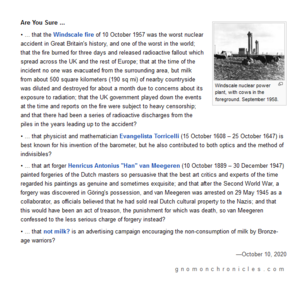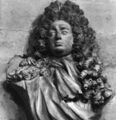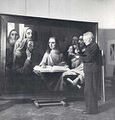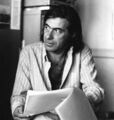October 10
Are You Sure ... (October 10, 2020)
• ... that the Windscale fire of 10 October 1957 was the worst nuclear accident in Great Britain's history, and one of the worst in the world; that the fire burned for three days and released radioactive fallout which spread across the UK and the rest of Europe; that at the time of the incident no one was evacuated from the surrounding area, but milk from about 500 square kilometers (190 sq mi) of nearby countryside was diluted and destroyed for about a month due to concerns about its exposure to radiation; that the UK government played down the events at the time and reports on the fire were subject to heavy censorship; and that there had been a series of radioactive discharges from the piles in the years leading up to the accident?
• ... that physicist and mathematician Evangelista Torricelli (15 October 1608 – 25 October 1647) is best known for his invention of the barometer, but he also contributed to both optics and the method of indivisibles?
• ... that art forger Henricus Antonius "Han" van Meegeren (10 October 1889 – 30 December 1947) painted forgeries of the Dutch masters so persuasive that the best art critics and experts of the time regarded his paintings as genuine and sometimes exquisite; and that after the Second World War, a forgery was discovered in Göring's possession, and van Meegeren was arrested on 29 May 1945 as a collaborator, as officials believed that he had sold real Dutch cultural property to the Nazis; and that this would have been an act of treason, the punishment for which was death, so van Meegeren confessed to the less serious charge of forgery instead?
• ... that not milk? is an advertising campaign encouraging the non-consumption of milk by Bronze-age warriors?
On This Day in History and Fiction
1641: Torricelli arrives in Arcetri to study with Galileo. ".. postpone his arrival at Arcetri until 10 October 1641. He took up residence in Galileo’s house, where Vincenzo Viviani was already living, and stayed there in close friendship with Galileo until the latter’s death on 8 January 1642.
1708: Mathematician and astronomer David Gregory dies. At the Union of 1707, he was given the responsibility of reorganizing the Scottish Mint.
1731: Chemist, physicist, and philosopher Henry Cavendish born. He will discover "inflammable air", later named hydrogen.
1889: Painter and forger Han van Meegeren born. He will be one of the most ingenious art forgers of the 20th century.
1957: Windscale fire nuclear accident: The fire burned for three days and there was a release of radioactive contamination that spread across the UK and Europe. The event was not an isolated incident; there had been a series of radioactive discharges from the piles in the years leading up to the accident.
1979: Psychologist, computer scientist, and author Christopher Evans dies.







